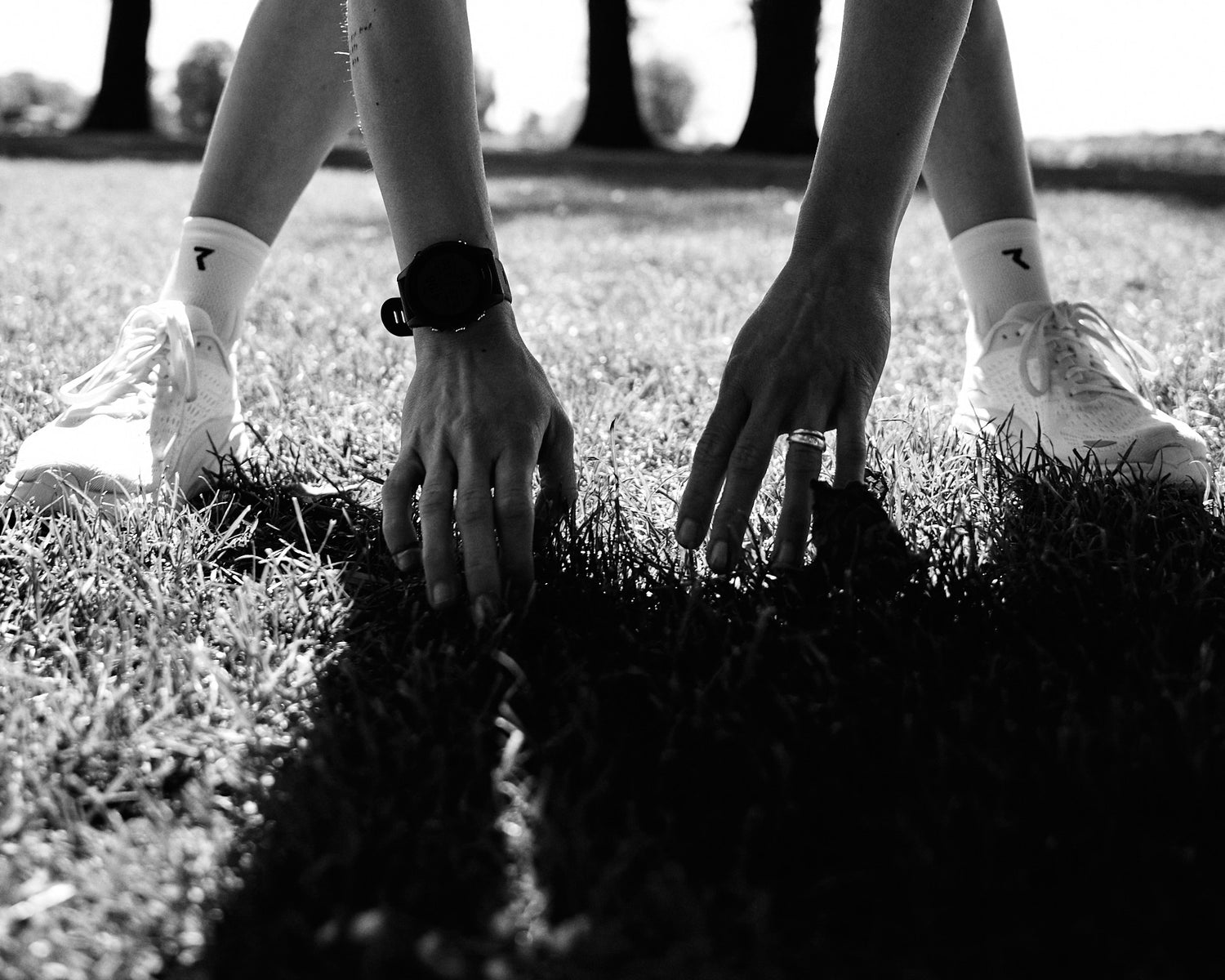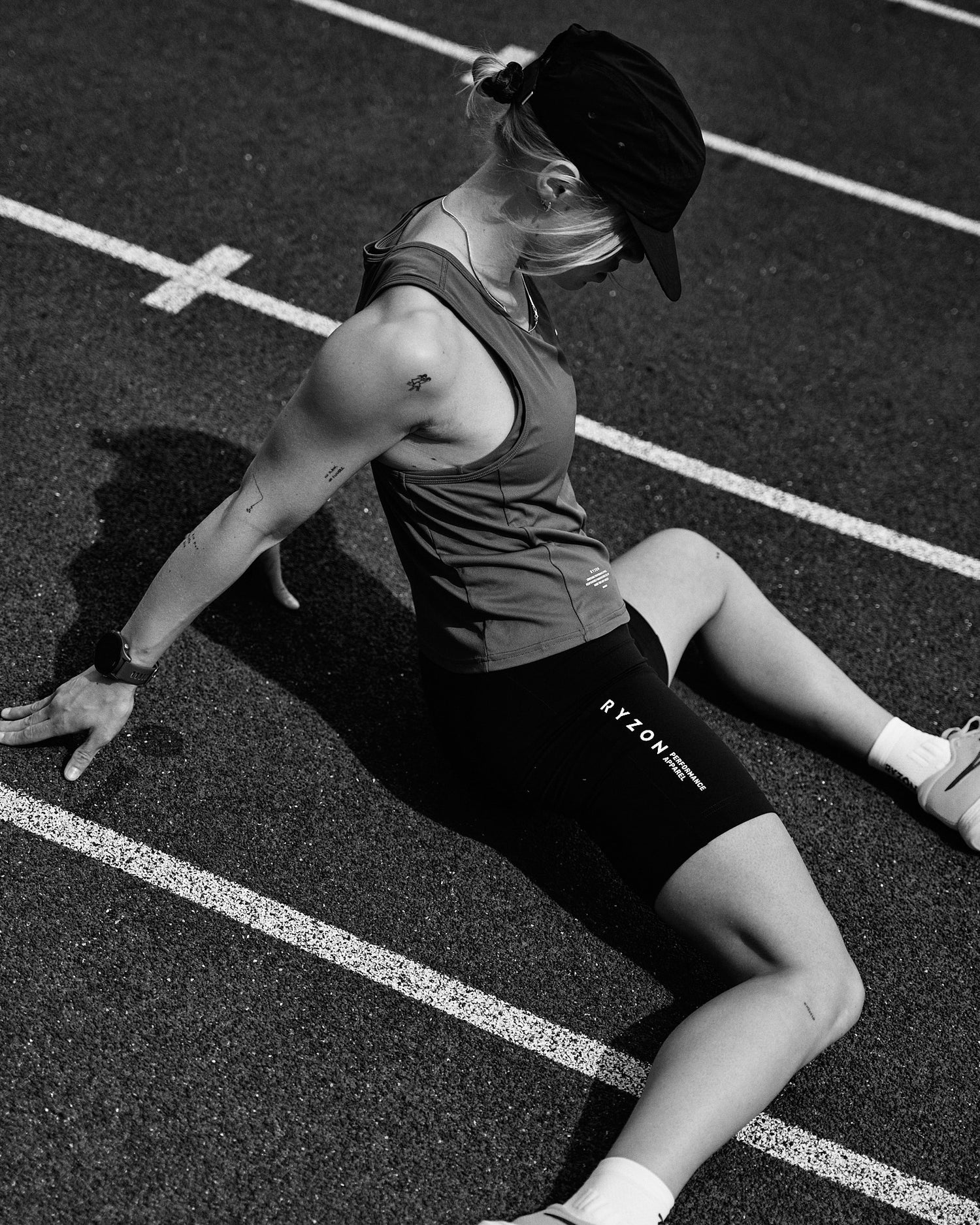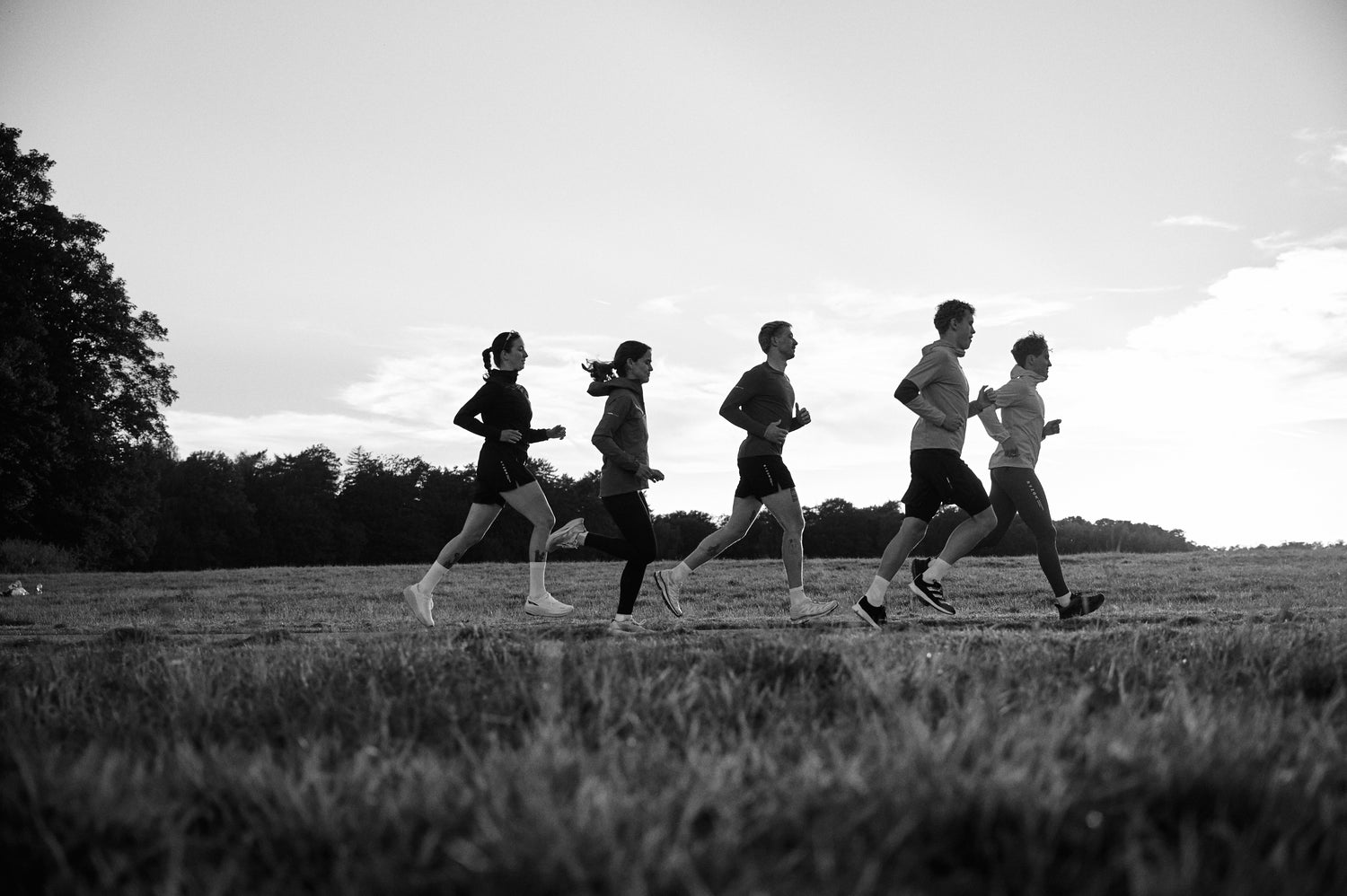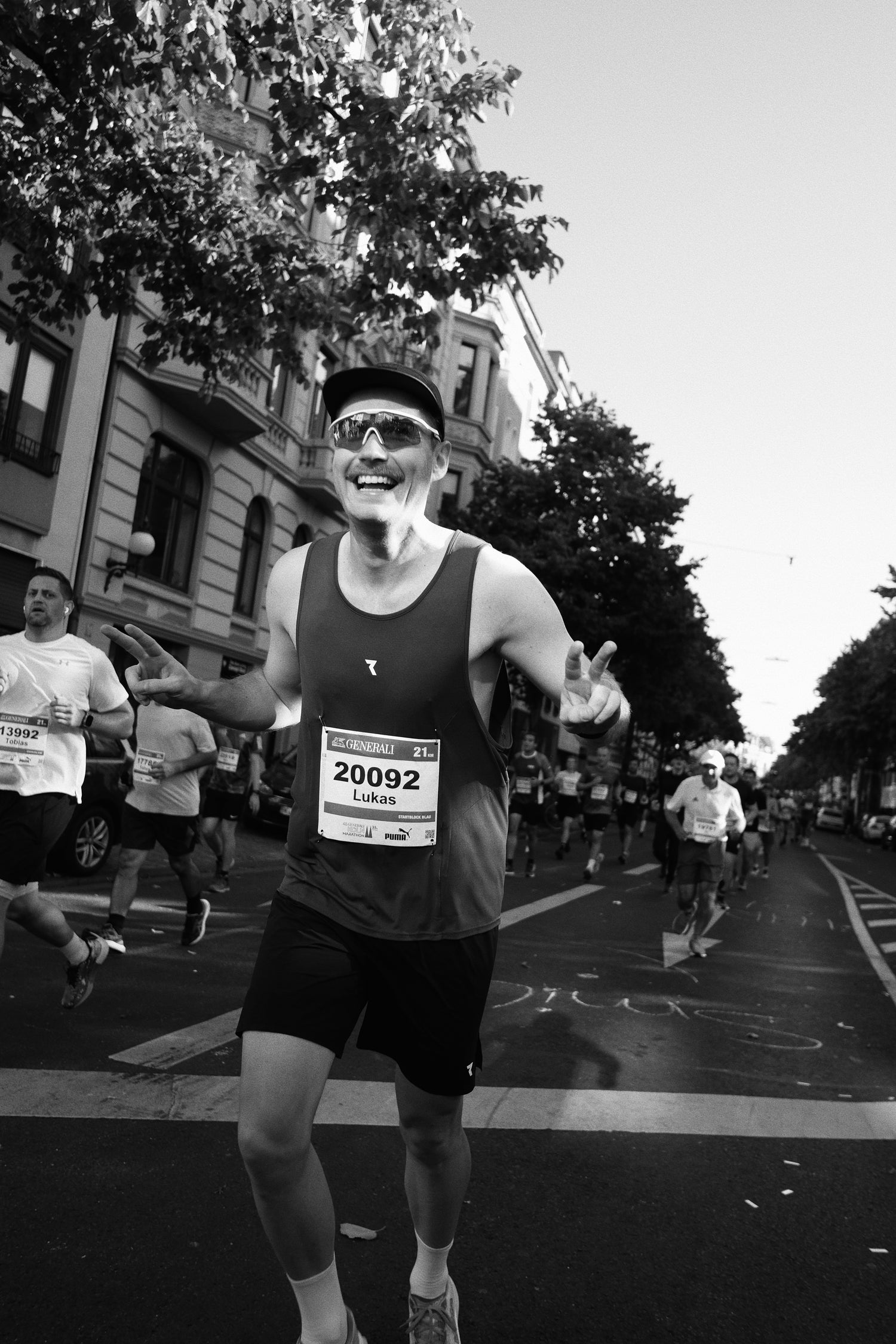Complete your marathon! Tips & training plans for half marathons and marathons
In 7 lessons, our half marathon and marathon guide will tell you what you need for your preparation – from setting goals and your training plan to race day.
// Lesson 1 - Defining the goal
// Lesson 2 - Your training plan (week by week)
// Lesson 3 - Performance
// Lesson 4 - Injury Prevention
// Lesson 5 - Community
// Lesson 6 - Starting in Winter
// Lesson 7 - Race Day
// The right equipment for your running challenge - Here you can find our selection

Lesson 1 - Defining the goal
Start your running adventure with a clear goal!
In our Half Marathon & Marathon Guide, you'll learn in 7 lessons how to prepare step by step for your first race. Lesson 1 is all about setting the right goals – a crucial factor for motivation, structure, and long-term training success . You'll learn how to set realistic goals, plan your training, and get off to an effective start with the right tools, exercises, and tips – whether for the half marathon or the marathon.

Lesson 2 - Your training plan (week by week)
Create a training plan – how to reach your running goal
In Lesson 2 of our Half Marathon & Marathon Guide, you'll learn how to create a structured training plan that will get you to your goal efficiently and injury-free. With the right mix of workload, recovery, and progression, you'll improve endurance, technique, and motivation. Whether it's a 5K, half marathon, or marathon – with a realistic plan, appropriate tools, and inspiring challenges, you'll stay focused and move closer to your goal step by step.

Lesson 3 - Performance
Increase performance – run faster & more efficiently
In Lesson 3 of our Half Marathon & Marathon Guide, we'll show you how to specifically improve your running performance. With interval training, tempo runs, and technical optimization, you'll increase your pace and run more efficiently. At the same time, you'll learn why recovery is essential: Regeneration, targeted strength training, and good sleep and nutrition habits will help you prevent injuries and maintain long-term performance. The perfect balance of training and recovery will bring you sustainably closer to your goal.

Lesson 4 - Injury Prevention
Reach your goal without injury – prevention in running training
To ensure you stay healthy during your half marathon or marathon training, targeted injury prevention is essential. Common causes such as overexertion, poor running technique, or a lack of recovery often lead to typical running injuries like runner's knee, shin splints, or Achilles tendon problems. You can prevent these injuries through strengthening exercises, adequate sleep, a healthy diet, and regular recovery periods . Listen to your body, increase your training gradually, and maintain proper technique – this will help you stay productive and injury-free in the long term.

Lesson 5 - Community
Things run better together – the power of the running community
Even though running can be a solitary sport, a community offers many advantages: more motivation, valuable tips, and shared experiences . Whether in a local running group, at events, or in online communities like Strava or on social media – exchanging ideas with others helps you stay on track and keep your training varied. A community is a real game changer, especially when preparing for a half marathon or marathon. You benefit from shared goals, mutual support, and new friendships. So: connect – and get running; it's simply more fun together!

Lesson 6 - Starting in Winter
Winter training – the basis for your spring half marathon or marathon
If you want to compete in the spring, winter is your most important training time. Despite the cold, darkness, and slippery trails, you can train effectively with the right strategy. The focus is on building your basic endurance, adapting to cold conditions, and targeted strength and technique training. Winter makes you strong – physically and mentally!

Lesson 7 - Race Day
Let's go to the competition
Race day is the climax of your training – planning is everything . In the week leading up to it, you'll reduce your training, refuel with carbs, and prepare mentally. On race day itself, it's important to get up on time, eat a light breakfast, warm up well, wear appropriate clothing, and not start too fast. During the race, gels and positive thoughts will help you reach your goal. Afterward, recovery is important.
